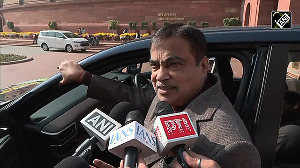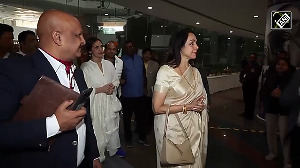 Legacy issues that have held back private investments need to be worked out, says Chief Economic Advisor Arvind Subramaniam who feels that reforms in taxation, improving ease of doing business and stepping up of public investments should be the focus to perk up the economy. However, he ruled out any fiscal stimulus for boosting growth.
Legacy issues that have held back private investments need to be worked out, says Chief Economic Advisor Arvind Subramaniam who feels that reforms in taxation, improving ease of doing business and stepping up of public investments should be the focus to perk up the economy. However, he ruled out any fiscal stimulus for boosting growth.
"I think two sectors holding back the economy are private investments and exports. We have discussed this several times.
We have discussed this in the Economic Survey as well that corporate sector is still challenged. It has legacy issues and those that are holding back private investment need to be worked out," he told PTI in an interview here.
Ease of doing business, taxation, public investment and GST law are on all part of the agenda of reforms before the government.
"Of course, the question is open when and who will take the lead. All these are standard agenda items. It is not kind of secret or complicated," he said when asked about what are the areas on government's mind when it talks about stepping up reforms.
To a question about the complaints from the industry despite a number of measures that have been taken by the government to resurrect confidence, Subramanium said the point is the extent of problem is quiet deep. "I think legacy problem and specially when economy is slowing down there is still a lot of debt."
He said getting back the economy to 8-10 per cent growth trajectory was possible within the present government's tenure.
"The external environment is quite challenging and our exports have come down. So these are two factors that are still holding back the economy. That is why... public investment is going to fill in the gap," he said.
Rejecting possibility of a fiscal stimulus to prop up the economy, Subramanian said such a move is not required for structural reforms.
"Fiscal stimulus you provide when you think economy is cyclically and is operating at low potential. But when we are talking about 8-10 per cent sustained growth, we need much more structural policy then cyclically policy. Thats the clear distinction we need to make," he said. He said the government has a "very good" fiscal deficit target.
"It is very important for maintaining macro economic stability that we should meet that and I don't think there is any need for any fiscal stimulus at this stage."
Finding resources for a fiscal stimulus could be difficult and it could jeopardise macroeconomic stability.
"And as I said we don't need fiscal stimulus for structural reforms. Fiscal stimulus is not part of our agenda," he said.
Cut in corporate tax rates to 25 per cent over the next few years will help consumption, he said. But he added a rider that it is not just tax cut but it will be accompanied by removal of exemptions.
"That is going to be combined with trying to reduce the exemptions. So it is a two-pronged strategy of not just reducing rates. It is important to try and to protect the tax base by making it simpler. "
"At the moment we have a plan, whether we should accelerate the plan... it is very premature at this stage to think about something that we have not begun implementing. Once you begin implementing it, then we will see what happens," he said.









